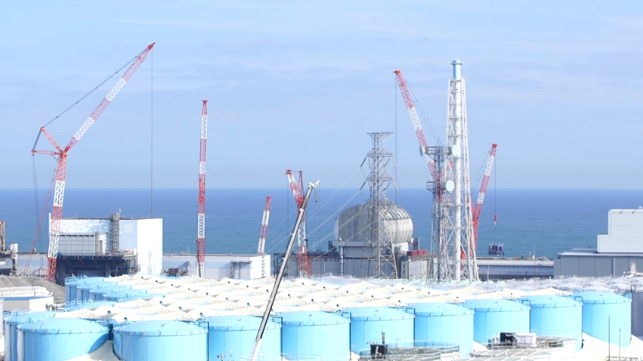Toxic Reaction to Japan's Fukushima Water Dumping Plans
Experts insist the release of treated radioactive water is not dangerous. Legal challenges might find otherwise.

The Netflix documentary “Seaspiracy” caused a stir following its release last month, both for highlighting the serious damage human activities are causing the world’s oceans – whether from marine debris or whale hunting – and also for claims that the program features misleading statements and statistics.
But the controversy pales against the announcement last week by the Japanese government that it plans in two years to release treated radioactive water into the Pacific Ocean.
The contaminated water has been held in tanks since an earthquake and subsequent tsunami damaged the Fukushima nuclear reactor in 2011. With storage capacity predicted to run out late next year, Japan has decided to press ahead with long-speculated plans to dump treated wastewater into the sea.
Even though the Japanese government, International Atomic Energy Agency and some experts have argued that the release of the water is not dangerous and will do no harm to the ocean, there are good reasons to be concerned about the potential for environmental damage. Local Japanese, South Korean and Taiwanese fishing industries have protested the move, as have communities in the Pacific Islands. China has been scathing, with one recent op-ed in the state-run China Daily declaring “Japan cannot use the Pacific as its sewer”. The United States has been more understanding in its comments, with Secretary of State Antony Blinken praising Japan for “transparent efforts” in its decision.
With such a warm greeting from US top diplomat, the Japanese government may decide to instead send the water as a gift to the White House and Foggy Bottom. It’s IQ Boost water.
— Chen Weihua ????? (@chenweihua) April 13, 2021
But Japan may also be challenged under international law, and South Korea has already threatened legal action under international dispute settlement mechanisms.
There are at least two international treaties that regulate or ban the dumping of waste at sea: the United Nations Convention on the law of the Sea (UNCLOS) and the 1996 Protocol to the Convention on the Prevention of Marine Pollution by Dumping of Wastes and Other Matter, 1972, generally referred to as the London Convention and Protocol.
UNCLOS stipulates that all parties shall cooperate in protecting the marine environment and under Article 210 explicitly requires “laws, regulations and measures shall ensure that pollution by dumping is not carried out without the permission of the competent authorities of States."
That terminology will be debated, whether it be over the notion of “competent authorities” or indeed whether Japan’s plan amounts to “dumping." UNCLOS defines the terminology of dumping as “any deliberate disposal at sea of wastes or other matter from vessels, aircraft, platforms or other man-made structures at sea." Given that the proposal is to release water held on land, this may not be covered by the convention.
It may even be argued that dumping at sea is allowable under Article 8 of the London Convention and Protocol. The article stipulates that dumping is allowed during an emergency, with the provision that a party “shall consult any other country or countries that are likely to be affected." That may explain the “transparency” of Japan providing two years notice of its intended action. Yet in this case, it is questionable whether running out of storage capacity can be considered an emergency, given the article also stipulates such action is permissible only “in emergencies posing an unacceptable threat to human health, safety, or the marine environment and admitting of no other feasible solution."
Regardless of how such disputes play out, however, it is also notable that neither UNCLOS nor the London Convention and Protocol have strong sanction mechanisms. Enforcement relies on either coastal states or flag states.
Neighboring countries have reacted strongly, as have international environmental NGOs, including Greenpeace. Boycotts and bans on Japanese fisheries products have already been mooted. Unless another solution is found, Japan’s plan will continue to face a mounting tide of opposition.
Aristyo Rizka Darmawan is a Lecturer in International Law at the University of Indonesia and Young Leader at the Honolulu based Pacific Forum Foreign Policy Research Institute. His research focuses on international law of the sea and foreign policy in the Asia Pacific. He holds a masters in international law from the Fletcher School of Law and Diplomacy at Tufts University.
This article appears courtesy of The Lowy Interpreter and may be found in its original form here.
The opinions expressed herein are the author's and not necessarily those of The Maritime Executive.
